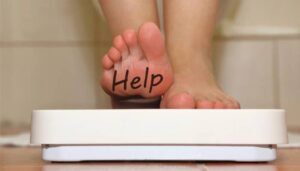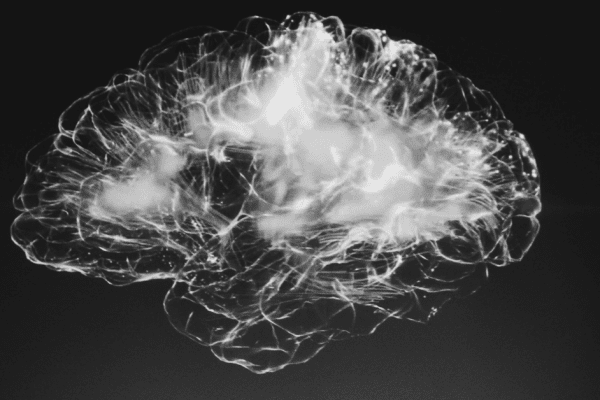
Eating disorders are serious mental illnesses with high levels of psychological stress, risks of severe short and long-term medical complications, and an increased likelihood of premature death. Eating disorders have the highest mortality of any psychiatric illness.
The secretive and complex nature of eating disorders means they often go undetected. Early recognition of the symptoms of eating disorders is key to seeking support promptly and giving your child the best chance of treatment and recovery.
Symptoms of an Eating Disorder: What to Know
Eating disorders are rising worldwide. It’s estimated that over 16% of the Australian population is affected by eating disorders and disordered eating.
It is important to note that everyone’s experience of an eating disorder, and that of their family and friends, is unique. An eating disorder is not a cry for attention or a selective lifestyle. An eating disorder is a serious mental health issue that can be life-threatening and needs to be treated as such, not as a lifestyle choice that can be cured by “just eating”.
There are several types of eating disorders, including anorexia nervosa, bulimia nervosa, binge eating disorder, and other specified feeding and eating disorders (OSFED), including selective eating disorders, that all have differences and nuances. Children can move from one to another during their recovery.
Children and teens suffering from eating disorders often feel a high level of shame and fear about their condition and will go to great lengths to ensure it is not discovered.
So how does a family member or friend work out if there is an eating disorder problem?

What Are the Symptoms of Disordered Eating or Eating Disorders?
There are several symptoms of an eating disorder that parents can look out for with their children. Dramatic weight gain or loss or a refusal to eat are obvious signs, but there are other more insidious indications that your child could be in trouble.
Poor body image and self-talk
Poor or negative self-talk about body image can contribute significantly to decreased mental and physical health and could be a warning that your child has an eating disorder.
Society’s obsession with being thin and youthful, coupled with social media and peer pressure, leads many young people to compare themselves unfavourably with others. Feelings of sadness, shame and dissatisfaction with their bodies can lead to extreme weight control behaviours that can harm both boys and girls. Our belief that ‘thin is best’ can lead to adolescent depression and low self-esteem.
Not eating in public
The fear of eating in public or eating with family and friends and the internal shame that comes with being seen consuming food can be a red flag. If your child refuses to eat in public or even at home with you at family meals, it could be a symptom of an eating disorder.
Some children and teens will go to the lengths of pretending to eat with the family while hiding that food in their clothing or nearby objects.
Compulsive ‘healthy’ eating

Children and adolescents who become passionate and compulsive about ‘healthy eating’ or ‘clean eating’ may be displaying symptoms of disordered eating. They may then increasingly restrict their diets while counting calories to reinforce their healthy eating plan and can be at risk of developing a selective eating disorder.
Eating clean and healthy food isn’t necessarily a bad thing, but this can sometimes turn into an obsession that becomes all-consuming for an individual, leading to further symptoms associated with disordered eating.
Feeding others elaborate meals
Teens and children who take great love and happiness in feeding others large, complicated and over-the-top meals may exhibit eating disorders.
Preparing and cooking elaborate meals for others but not sharing or eating the prepared food can be early warning symptoms of an eating disorder or disordered eating.
Eating rituals and strange food combinations
Eating rituals can be a symptom of anorexia, a binge eating disorder, or other eating disorders. They can give the child a sense of control.
Rituals can take the form of cutting food into very small pieces and moving food around to place it in patterns. This behaviour is a tactic to make it look like they are eating while eating very little and keeping their eating behaviour secretive. Creating strange food combinations, think ice cream and tomato sauce, can also signify a binge eating disorder.
Excessive exercising
Excessive, obsessive or compulsive over-exercising often goes hand in hand with eating disorders.
As children or young people try to gain further control over their bodies and the foods they eat, overexercising can become a coping mechanism to justify or ‘earn’ the foods they eat.
Wearing loose clothing
Physical signs of an eating disorder can sometimes take longer for friends and family to become aware of, as the child or teen can go to great lengths to hide any symptoms of their disorder.
Adolescents may wear loose or baggy clothing to hide their weight loss. While parents may be relieved their child is not wearing tacky or tasteless clothes, this could signify something more sinister. As weight loss increases, many will feel constantly cold and wear many layers to keep warm, even during mild weather.
Very fine body hair
Some parents may notice their child is developing fine, pale-coloured hair on their body, similar to a light, down-like fur, as their body adjusts to surviving with less food and nutrients to fuel their body.
Grazed knuckles
Parents are encouraged to look closely at the hands of a child suspected of suffering from bulimia as they can exhibit grazing or callousing on their knuckles, caused by scraping them against their teeth in an effort to purge.
How to Help Your Child if You Notice Eating Disorder Symptoms
Dr Leanne Barron, a General Practitioner with a special interest in eating disorders at The Banyans Health and Wellness, says early intervention in an eating disorder is far more effective than waiting months or years to seek help.
“If you think your child is showing symptoms of any type of eating disorder, contact the experts so they can help you,” says Dr Barron. “Medical and other support is never far away, and people need to put aside their fear and shame and ask for help in the best interests of their child. Emerging research identifies underlying genetic and biochemical risk factors, and it is important to appreciate that nobody chooses to have an eating disorder.”
“We have the multidisciplinary expertise and knowledge here at The Banyans to help address the issues underlying an eating disorder,” said Dr Barron.
When Handling Signs of an Eating Disorder: Be Compassionate & Non-Judgemental
Dr Barron advises parents to address any concerns they have regarding their child or teen in a non-judgmental and compassionate way. It is important to have a discreet discussion with the person as many people feel ashamed of what they are doing and go to great lengths to hide it.
As an eating disorder is a complex psychological and physical illness, a comprehensive biopsychosocial approach is imperative in treating the condition. Dr Barron approaches all her eating disorder patients from this treating perspective.
The extended eating disorder treatment team at The Banyans Health and Wellness may comprise other allied health specialists, including psychologists, counsellors, and dietitians. It is important to note that acute eating disorder cases may require hospitalisation and physical stabilisation prior to a stay at The Banyans Residence.
If you or someone you love would benefit from a program at The Banyans Health and Wellness residence, please call 1300 226 926 for a confidential discussion with our expert team, or fill in our enquiry form below.













